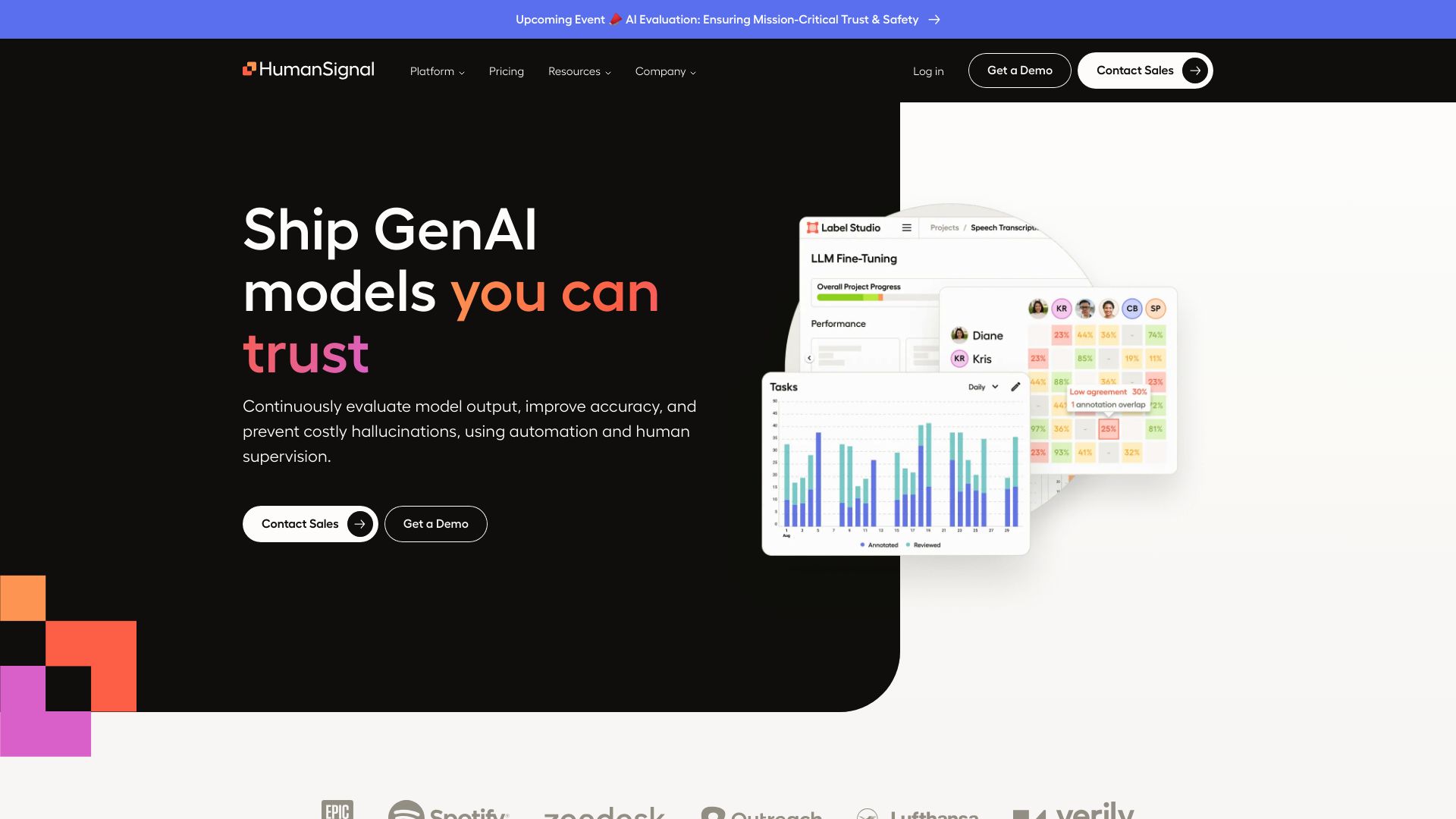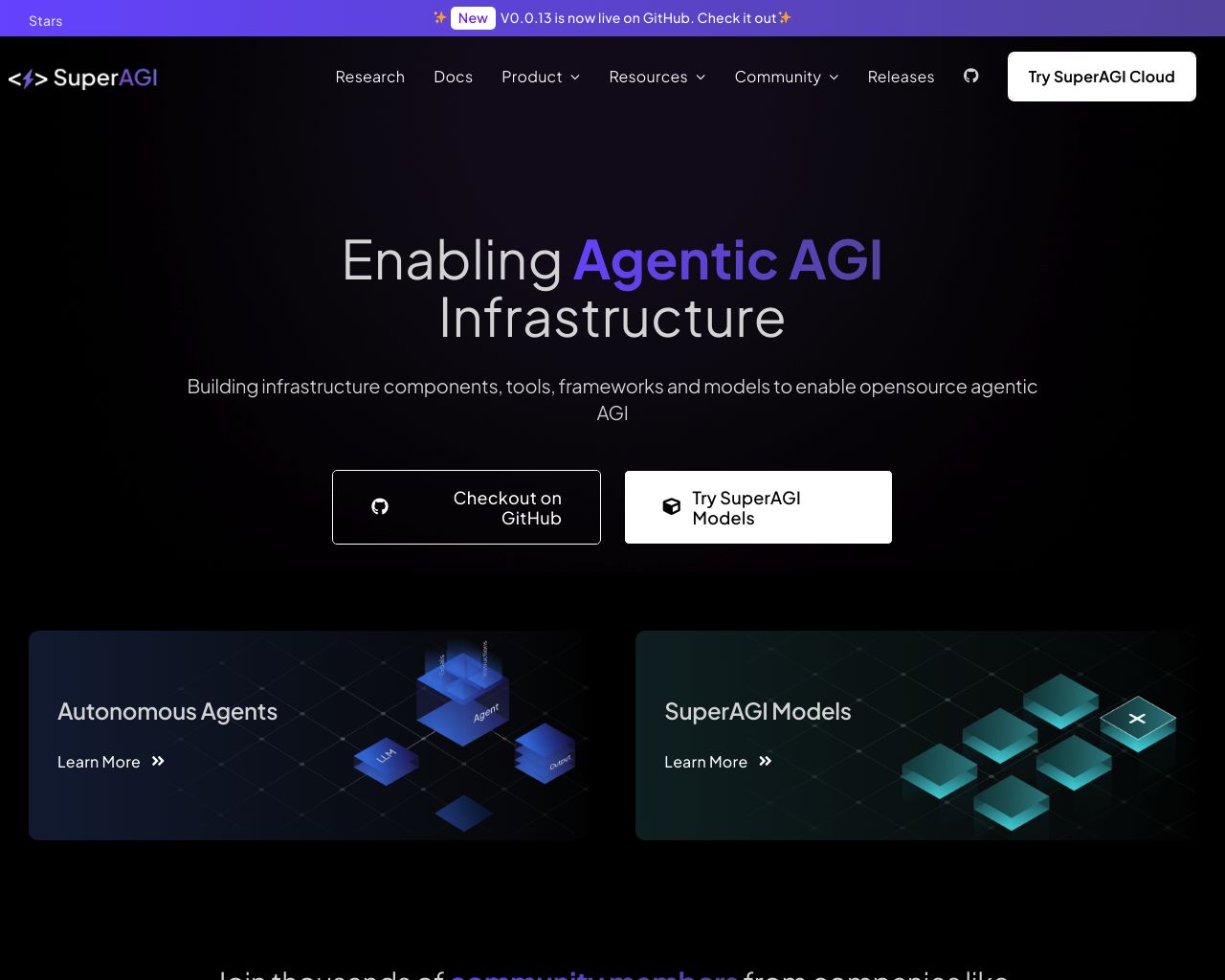Adala And SuperAGI: A Comprehensive AI Platform Comparison
AI agent platforms reshape how businesses harness machine intelligence. Adala and SuperAGI offer unique approaches to this evolving landscape, each with distinct strengths. Adala specializes in autonomous data labeling, revolutionizing how organizations prepare datasets for machine learning. SuperAGI provides a versatile framework for building AI agents capable of diverse tasks.
This comparison delves into the core features, integration capabilities, and real-world applications of both platforms. We’ll explore how each tool addresses the needs of developers, data scientists, and business leaders looking to leverage AI for improved efficiency and innovation. By examining Adala, SuperAGI, and the advanced capabilities of SmythOS, readers will gain insights to make informed decisions about AI agent technology for their specific use cases.
Adala Overview
Adala revolutionizes data labeling with its open-source framework for autonomous AI agents. These agents learn from ground truth datasets, evolving into efficient prediction engines for large-scale data labeling tasks. Adala’s approach combines machine intelligence with human expertise, ensuring accurate and scalable data processing.
Adala revolutionizes data labeling with its open-source framework for autonomous AI agents… evolving into efficient prediction engines for large-scale data labeling tasks.


Developed by Adala, formerly known as Heartex, this platform targets data scientists, researchers, and AI developers seeking to streamline their data labeling workflows. Adala excels in tasks like classification and labeling, supporting various data types including text, video, and images. Its iterative learning process allows agents to continuously improve, adapting to complex data challenges.
Adala excels in tasks like classification and labeling, supporting various data types including text, video, and images.
Key features of Adala include collaborative workflows, detailed activity logs, and performance reports. The platform integrates with popular AI models, including GPT-4 and those from Hugging Face, offering flexibility in model selection. Adala emphasizes data security, employing encryption at rest and in transit, with OAuth support for API authentication.
While Adala shines in automating data labeling, it lacks some features found in more comprehensive AI development platforms. The absence of a visual builder or no-code editor may limit accessibility for non-technical users. Additionally, there’s no mention of specific debugging tools or agent scheduling capabilities, which could be valuable for complex projects.
Adala positions itself as a specialized tool in the AI ecosystem, focusing on enhancing data quality for machine learning applications. Its emphasis on integrating human expertise with AI automation sets it apart, particularly for organizations prioritizing data-centric AI development. However, users seeking a full-featured AI agent development environment might find Adala’s specialized focus limiting for broader application development.
SuperAGI Overview
SuperAGI offers an open-source autonomous AI agent framework for developers to build, manage, and run intelligent agents. The platform empowers users to create AI assistants capable of performing diverse tasks and improving with each iteration.


SuperAGI distinguishes itself through extensive tool integration, supporting platforms like Slack, Google Search, GitHub, and Zapier. This versatility allows agents to seamlessly handle a wide range of tasks. The framework includes a user-friendly graphical interface, simplifying agent management for users of varying technical expertise.
SuperAGI distinguishes itself through extensive tool integration… This versatility allows agents to seamlessly handle a wide range of tasks.
A standout feature is SuperAGI’s ability to run multiple agents concurrently, enhancing productivity and efficiency. The platform’s Docker-based installation streamlines setup, sidestepping common Python versioning and dependency issues.
SuperAGI’s unique approach combines software guardrails specific to development frameworks with Generally Intelligent Developer Agents. This combination enables the creation of complex real-world software systems. The platform prioritizes security and compliance while integrating deeply with existing developer tools such as Jira, GitHub, and Jenkins.
SuperAGI’s unique approach combines software guardrails… with Generally Intelligent Developer Agents. This combination enables the creation of complex real-world software systems.
While SuperAGI offers powerful capabilities, users should consider potential limitations. The platform may require a learning curve for those new to AI development. Additionally, as an open-source project, community support and documentation quality can vary. Organizations with specific security or compliance needs should thoroughly evaluate SuperAGI’s features against their requirements.
Feature Comparison
Adala and SuperAGI offer distinct approaches to AI agent development, each with unique strengths and limitations. Adala specializes in autonomous data labeling, while SuperAGI provides a broader framework for building versatile AI agents.
In core components, SuperAGI outpaces Adala with its visual builder and no-code editor, making agent creation more accessible to non-technical users. Adala lacks these features, potentially limiting its user base. SuperAGI also offers a debug mode, enhancing transparency and allowing developers to fine-tune their agents effectively. Adala does not mention specific debugging tools, which could hinder troubleshooting complex workflows.
Regarding security, both platforms prioritize data protection, but SuperAGI takes the lead with its Docker-based installation, which inherently provides an additional layer of security and isolation. Adala emphasizes data encryption but doesn’t specify containerization or advanced security measures. SuperAGI’s integration with existing developer tools like GitHub and Jenkins also suggests a more comprehensive approach to security in collaborative environments.
Feature Comparison Table
| Adala | SuperAGI | SmythOS | |
|---|---|---|---|
| CORE FEATURES | |||
| Visual Builder | ❌ | ❌ | ✅ |
| No-Code Options | ❌ | ❌ | ✅ |
| Audit Logs for Analytics | ❌ | ✅ | ✅ |
| SECURITY | |||
| IP Control | ❌ | ❌ | ✅ |
| COMPONENTS | |||
| Data Lakes | ❌ | ❌ | ✅ |
| DEPLOYMENT OPTIONS (EMBODIMENTS) | |||
| Staging Domains | ❌ | ❌ | ✅ |
| Production Domains | ❌ | ✅ | ✅ |
| Deploy as Scheduled Agent | ❌ | ✅ | ✅ |
| DATA LAKE SUPPORT | |||
| Sitemap Crawler | ❌ | ❌ | ✅ |
| YouTube Transcript Crawler | ❌ | ❌ | ✅ |
Best Alternative to Adala and SuperAGI
SmythOS emerges as the superior alternative to Adala and SuperAGI for agentic AI automation. Our platform offers unparalleled ease of use, an extensive feature set, and unlimited use cases. SmythOS’s visual builder and no-code options make agent creation accessible to users of all skill levels, surpassing both Adala and SuperAGI in user-friendliness. We provide robust security measures, including IP control and data encryption, ensuring enterprise-grade protection for AI deployments. SmythOS excels in deployment flexibility, offering staging and production domains, scheduled agents, and integration with popular AI models.
Our platform supports a wide range of data sources and formats, including sitemaps, YouTube transcripts, and various file types, enhancing the versatility of AI agents. With SmythOS, users can create sophisticated multi-agent systems that collaborate on complex tasks, a capability not explicitly offered by Adala or SuperAGI. Our scalable infrastructure and comprehensive analytics tools enable businesses to grow their AI operations seamlessly. By choosing SmythOS, users gain access to a cutting-edge AI operating system that revolutionizes workflow automation and innovation across industries.
SmythOS emerges as the superior alternative to Adala and SuperAGI for agentic AI automation. Our platform offers unparalleled ease of use, an extensive feature set, and unlimited use cases.
Conclusion
Adala and SuperAGI each offer unique strengths in the AI agent landscape. Adala excels in autonomous data labeling, leveraging iterative learning to enhance accuracy over time. SuperAGI provides a versatile framework for building AI agents, supporting tool integration and concurrent execution. Both platforms prioritize data security and offer valuable features for their target users.
However, SmythOS emerges as the superior choice, combining the best of both worlds with additional advantages. Our drag-and-drop interface surpasses SuperAGI’s visual builder, making AI agent creation accessible to users of all technical levels. Unlike Adala’s specialized focus, SmythOS offers a comprehensive suite of tools for developing, deploying, and managing AI agents across various use cases.
SmythOS stands out with its extensive integration ecosystem, supporting over 300,000 APIs and tools. This flexibility allows users to create powerful, custom workflows that seamlessly connect with existing systems. Our platform also excels in scalability and deployment options, enabling users to deploy SmythOS Agents Anywhere, from chatbots to APIs, across multiple channels and platforms.
For those ready to experience the future of AI agent development, we invite you to create a free SmythOS account. With our risk-free trial, unlimited agent creation, and 30-day money-back guarantee, you can explore the full potential of AI automation without commitment. Discover game-changing AI templates to jumpstart your projects and revolutionize your workflow today.
Last updated:
Disclaimer: The information presented in this article is for general informational purposes only and is provided as is. While we strive to keep the content up-to-date and accurate, we make no representations or warranties of any kind, express or implied, about the completeness, accuracy, reliability, suitability, or availability of the information contained in this article.
Any reliance you place on such information is strictly at your own risk. We reserve the right to make additions, deletions, or modifications to the contents of this article at any time without prior notice.
In no event will we be liable for any loss or damage including without limitation, indirect or consequential loss or damage, or any loss or damage whatsoever arising from loss of data, profits, or any other loss not specified herein arising out of, or in connection with, the use of this article.
Despite our best efforts, this article may contain oversights, errors, or omissions. If you notice any inaccuracies or have concerns about the content, please report them through our content feedback form. Your input helps us maintain the quality and reliability of our information.
